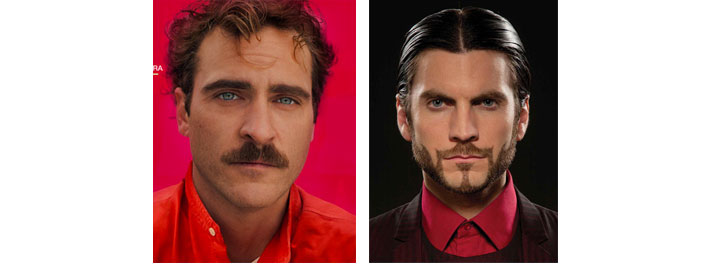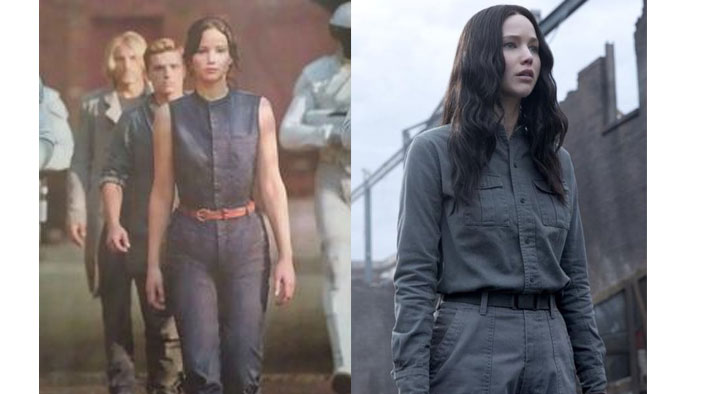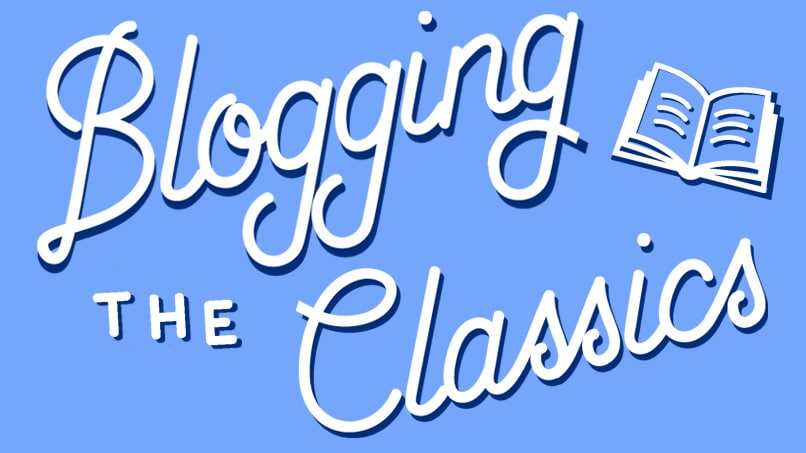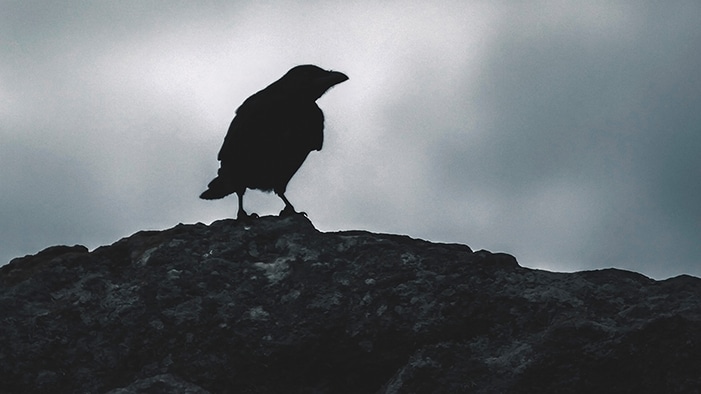Blogging 1984: I (Part I, Chapter 1)

I first “read” 1984 in maybe grade eight, and the main memories are of my English teacher writing “BIG BROTHER” and “NEWSPEAK” up on the blackboard, lest we miss the \subtlety/ of George Orwell’s writing. As the saying goes, behind every book with one or more eyeballs on the front cover is an author with a Very Important, Zero-Chill Message, and George Orwell was about as chill as his artistic contemporary Shia LeBeouf. George wanted you to be ~ready~.
Hot on the heels of the fantastic Blogging The Great Gatsby and Blogging Lord of the Flies, I hereby commit to chronicling my way through the venerable political text that brought us the self-same TV show Big Brother, and, by extension, Survivor, The Hills, and my fav reality show of all time, the panda cam at San Diego Zoo. I doubt I can hit the high notes Elodie has rung out, but perhaps we can toddle through this thing in time for your essay that is due….
As you know, you can tell everything about a book from its first and last lines,* and 1984 begins thusly:
It was a bright, cold day in April, and the clocks were striking thirteen.
Wuh… thirteen? You’re thinking. Are we on Burning Man time? Ho no. The fact of there being multiple clocks all striking thirteen suggests something is very off, that some bad information is being passed around. The “bright, cold day in April” suggests to me either that a) no one has a tan yet, no, why are you asking it’s only April, or b) life in the alternate world of 1984 is somehow both bleak and overexposed.
Winston Smith, the man we will be accompanying through the novel, enters his crappy apartment building, which smells like boiled cabbage (this is England pre-Jamie Oliver), and passes an enormous poster of a man’s face with a “heavy black moustache and ruggedly handsome features,” and eyes that follow you around the room. So basically Joaquin Phoenix plus the intensity of Wes Bentley’s facial hair in The Hunger Games.

The caption beneath the poster reads: BIG BROTHER IS WATCHING YOU, which coincidentally was an abandoned slogan for the Boys and Girls Club of America. Winston takes seven flights of stairs up to his “flat” because the elevator is powered down to save energy for the upcoming 🎉Hate Week🎉 and I’m pretty excited to find out what that entails.
Inside his flat, a “fruity” voice (that’s an insult, here) is making constant MSNBC-esque announcements from a metal box about pig-iron production. Winston can’t turn it off so he turns it down, which makes my heart race, because one of my greatest fears is being stuck in the back of a yellow cab unable to turn off the taxi TV thing. Mario Lopez is ALWAYS on there and I just can’t. Even worse, Winston’s telescreen is simultaneously broadcasting and recording his every movement and sound.
Winston is, by the way, dressed in blue overalls, which are the official uniform of “The Party,” and which subsequently launched the uniforms of a thousand apocalyptic dystopias.

Out the window, the city is bleak and pasted over with numerous Joaquin posters—BIG BROTHER IS WATCHING—while in the distance, a helicopter peers into people’s windows. The Ministry of Truth building rises from the rot; a tall, vast tower above decaying, bombed-out terraces. Did I mention it’s bleak out?
The Ministry of Truth is referred to as Minitrue in Newspeak™, which is, I suppose, the government’s form of lolcatspeak. Minitrue is where news, entertainment, and the arts originate. There is also the Ministry of Peace, which handles war-related stuff, the Ministry of Plenty, which is the economic pillar, and the Ministry of Love, center of law and order, which has no windows and is surrounded by barbed-wire fences, battalions of soldiers, and “machine-gun nests”—your typical love dungeon.
Here’s a helpful way to remember what each ministry does:
- Ministry of Truth /s
- Ministry of Peace /s
- Ministry of Love (jkjkjkjk, bombs and weapons)
- Ministry of Plenty (except when you have to conserve power ahead of Hate Week)
There are also some helpful motivational slogans well known to citizens of the dank bombed-out landscape known as Oceania:
WAR IS PEACE
FREEDOM IS SLAVERY
IGNORANCE IS STRENGTH
Winston can’t remember his childhood, or even if England used to be a more glorious place, prior to the much hyped “Victory.” He has stolen home in his lunch hour, forfeiting a glorious canteen lunch so that he can… what is he doing here exactly?
He pulls some very nasty VICTORY GIN off a shelf and takes a teacupful, after which it looks for a minute like he might be asphyxiating from the toxicity, but then he finishes swallowing and thinks: mmm, nice. He hides his RBF with an agreeable expression for the benefit of the cameras, and then we get to see what naughty act of subversion he is up to: In a corner of the room ~hidden from the camera~, he is going to journal in a book he found in a “frowsy little junk-shop in a slummy quarter of town.” (Frowsy: will be using constantly in conversation from now on.) Though it is highly illegal to keep a diary, and he would likely be executed by the Thought Police if caught, Winston dips his nib in some ink, and off he goes…
April 4th, 1984
*Winston is hit by writer’s block* / *Me every NaNoWriMo*
Poor old Winston realizes that he doesn’t really know that it *is* the year 1984, only that that is what he has been told, and that it fits with the rough guess of his own age (39, but with a varicose ulcer, so a hard 39). He feels a twinge of what he calls “doublethink” (Newspeak lingo), or what we might call “cognitive dissonance” or “FOR THE LOVE OF GOD, WINSTON, WAKE UP AND SMELL THE DYSTOPIA.” He is also unsure who he is writing the diary for—remember, xoJane doesn’t exist in this alternate future-past. Broadly, he decides he is writing it for the future, for the unborn. Like Ta Nehisi-Coates.
His journaling begins with an account of the film he saw the night before, a horrific piece of wartime propaganda in which the lifeboats of enemies were bombed into pieces on a sea (“then there was a wonderful shot of a child’s arm going up up up right into the air a helicopter with a camera in its nose must have followed it up”) as the audience cheered—good thing he started with a shot of gin, really.
A woman in the theater, a prole in the “prole section” with a cockney accent cried out in protest at the violence and was carried off by the police:
“i don’t suppose anything happened to her nobody cares what the proles say typical prole reaction they never—”
—and he stops writing. Now, having put pen to paper, he remembers why he wanted to start a diary. That morning at work, he and his colleagues had gathered to watch the Two Minute Hate (the Xsanity of hate workouts) when a girl from the Fiction Department stalked by with “thick, dark hair, a freckled face, and swift athletic movements.” She is covered in grease, carries a spanner (… Rey?) and wears a scarlet sash representing the Junior Anti-Sex League.
Wait, though, it gets better: “Winston had disliked her from the very first moment of seeing her… It was because of the atmosphere of hockey-fields and cold-baths and community hikes and general clean mindedness which she managed to carry with her.” As an avid grass hockey player, I take offense. Winston dislikes all women, and sees them as being the most gullible to sloganeering, and the most loyal to rooting out subversives to The Party, but this girl is different™ in that her looks pierce his soul with a black terror.
No he definitely doesn’t like her at. all.
The man Dystopian Rey is with is called O’Brien, of a brutish build, and belongs to the Inner Party. Winston suspects that there is something unorthodox to him, on account of the general aura of intelligence and charisma that surround his “prize-fighter’s build.” (If you’re curious, I’m picturing a beefy Matt Damon.)
Shortly, The Hate begins. The Hate is primarily just a news reel, and features Emmanuel Goldstein, a former higher-up in the Party turned revolutionary who has been sentenced to death, but seems to be off hiding in a bunker, broadcasting his calls to action like a British Fidel Castro. He looks vaguely sheep-like, with a long thin nose, and “bleats” about the betrayal of revolution in front of the Eurasian army, which has the effect of riling everyone in the room up like they are watching the OJ trial all over again. Oceania (Winston’s home country) is at war with Eurasia, we learn, and at peace with Eastasia; regardless of specifics, it is always at war with one of them, just one big military-industrial love triangle. Goldstein commands The Brotherhood, a network of underground spies and conspirators, and is set on a coup, we understand.
At the conclusion of the Two Minute Hate—really just a taste of what it’s like for me to listen to talkback radio for any two-minute stretch—Winston’s feelings are pinging all over the place, from love for Big Brother and hate for Goldstein, to belief that Goldstein is telling the truth and Big Brother is evil, to this:
“Winston succeeded in transferring his hatred from the face on the screen to the dark-haired girl behind him. Vivid, beautiful hallucinations flashed through his mind. He would flog her to death with a rubber truncheon. He would tie her naked to a stake and shoot her full of arrows like Saint Sebastian.”
What no, her? I don’t like her at all. I mean, she’s okay.
The room is throbbing with foot-stamping and a mass chanting of “B… B” by all the worker bees, and Winston, somewhat like me in a mosh pit, feels a bit stupid about joining in. Still, he needs to look like everyone else, so he plays along, his eyes wandering the room idly and accidentally locking onto those of O’Brien in a dangerous game I call “side-eyeing the government.” They hold each other’s gaze for a fraction of a second; long enough for Winston to sense O’Brien telling him, “I am with you.”
At the conclusion of this memory, he glances back down at his journal and sees he has written:
DOWN WITH BIG BROTHER (x5)
This, Winston knows, is Thoughtcrime.™ If Thoughtcrime is the act of hating on things from inside the safety of your head, I am guilty of it thousands of times each day, and at least ten times each time I visit Pret a Manger. The repercussions of committing Thoughtcrime are that you will be woken in the night by the Thought Police, and then disappeared into some torturous prison beyond sight. I would say this could never happen in our world, except Gitmo is still open for business.
At this heady moment, with Winston having committed his first outright Thoughtcrime and also having become a blogger (welcome!), he hears a sharp knock at the door.
Uh oh…
Notes:
- Orwell crams a lot of references to Jewish people in this entreé to the novel, and it’s quite unnerving, frankly. He wrote the book in 1948, though, so it’s obvious why he might feel compelled to unpack the horrors of anti-Semitism in WWII.
- Proles: the proletariat, aka the worker class (it’s a Marxist term) or people likely to watch Duck Dynasty.
- I’m putting odds for a Winston-Rey hook-up at 3/5.
- Orwell has said that his political intent in writing 1984 was to argue “against totalitarianism and for democratic socialism”—I bet he and Bernie Sanders could have had a nice time hanging out in Burlington together.
*I’m not serious, unless you have literally no time to read the book—then, well, it’s something.
Find part two along with the rest of Janet’s 1984 blog here, and find our Blogging the Classics index page here.
Image credits: Penguin, Lionsgate, Annapurna Pictures, Lionsgate














